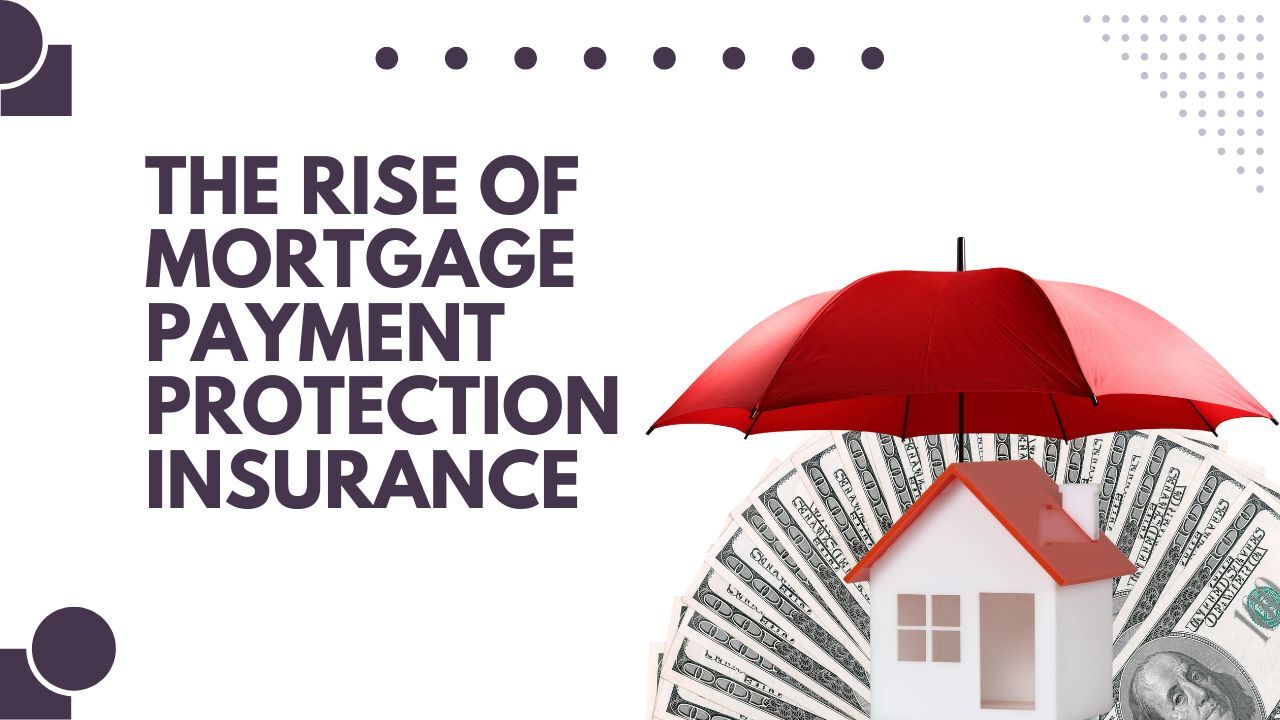The Rise of Mortgage Payment Protection Insurance
 For many homeowners, a mortgage is one of the largest financial commitments they will ever undertake. With economic uncertainty, job market fluctuations, and unforeseen life events, many borrowers seek additional safeguards to ensure they can meet their mortgage obligations. One such safeguard that has gained prominence in recent years is Mortgage Payment Protection Insurance (MPPI).
For many homeowners, a mortgage is one of the largest financial commitments they will ever undertake. With economic uncertainty, job market fluctuations, and unforeseen life events, many borrowers seek additional safeguards to ensure they can meet their mortgage obligations. One such safeguard that has gained prominence in recent years is Mortgage Payment Protection Insurance (MPPI).
What is Mortgage Payment Protection Insurance?
Mortgage Payment Protection Insurance (MPPI) is a type of insurance policy designed to cover a homeowner’s mortgage payments in the event of income loss due to circumstances such as unemployment, illness, or disability. Typically, these policies provide coverage for a fixed period, often between 12 and 24 months, allowing policyholders time to recover financially without the added pressure of making mortgage payments.
Factors Driving the Popularity of MPPI
Several key factors have contributed to the growing adoption of MPPI among homeowners:
- Economic Uncertainty – The unpredictability of the job market, economic downturns, and global financial crises have made homeowners more aware of the risks associated with losing their primary source of income.
- Rising Cost of Living – Inflation and increased living expenses mean that many homeowners have less disposable income and limited savings to cover mortgage payments in the event of a financial setback.
- Stricter Lending Requirements – Lenders have become more stringent in their lending practices, making it more challenging for borrowers to obtain mortgage forbearance or modifications without demonstrating financial hardship.
- Increased Awareness – Financial institutions, mortgage brokers, and insurance providers have actively promoted MPPI as a responsible financial planning tool, leading to greater consumer awareness.
Benefits of MPPI
Homeowners who opt for MPPI can experience several advantages, including:
- Financial Security – MPPI provides a safety net that ensures mortgage payments are covered even in the face of unexpected financial hardship.
- Protection Against Foreclosure – By maintaining regular mortgage payments, homeowners can avoid default and the risk of foreclosure.
- Peace of Mind – Knowing that a policy is in place to cover mortgage obligations can alleviate stress and allow homeowners to focus on recovery from job loss or illness.
- Flexible Coverage Options – Many policies offer customizable coverage, allowing homeowners to select plans that align with their specific needs and financial situation.
Considerations Before Purchasing MPPI
While MPPI offers valuable protection, it is important for homeowners to evaluate their options carefully. Some key considerations include:
- Policy Exclusions and Waiting Periods – Most policies have exclusions for pre-existing medical conditions or specific circumstances surrounding job loss. Additionally, there may be a waiting period before benefits begin.
- Cost vs. Benefits – Homeowners should assess the monthly premium costs in relation to their budget and overall financial plan.
- Alternative Protection Plans – Other financial safety nets, such as emergency savings, disability insurance, or income protection insurance, may provide comparable benefits.
The rise of Mortgage Payment Protection Insurance reflects the growing need for financial security among homeowners. As economic conditions continue to fluctuate, MPPI serves as a valuable tool for those seeking to protect their homes and financial well-being. However, homeowners must conduct thorough research and consult with financial professionals to ensure they select a policy that best meets their needs. By doing so, they can achieve greater stability and peace of mind in the face of life’s uncertainties.

 Buying a home is one of the most significant financial investments many of us will ever make. It is crucial to be vigilant against mortgage scams that can threaten your financial security and homeownership dreams. Mortgage scams come in various forms, but with awareness and caution, you can protect yourself from falling victim to fraudsters.
Buying a home is one of the most significant financial investments many of us will ever make. It is crucial to be vigilant against mortgage scams that can threaten your financial security and homeownership dreams. Mortgage scams come in various forms, but with awareness and caution, you can protect yourself from falling victim to fraudsters. lmost everyone has been locked out of their home before. If you do not have a hidden key or someone else with a key, it can be stressful to wait for a locksmith to come and open the door. Fortunately, there are ways homeowners can address this issue, and one of the options is to get a smart lock or an electronic lock instead.
lmost everyone has been locked out of their home before. If you do not have a hidden key or someone else with a key, it can be stressful to wait for a locksmith to come and open the door. Fortunately, there are ways homeowners can address this issue, and one of the options is to get a smart lock or an electronic lock instead.